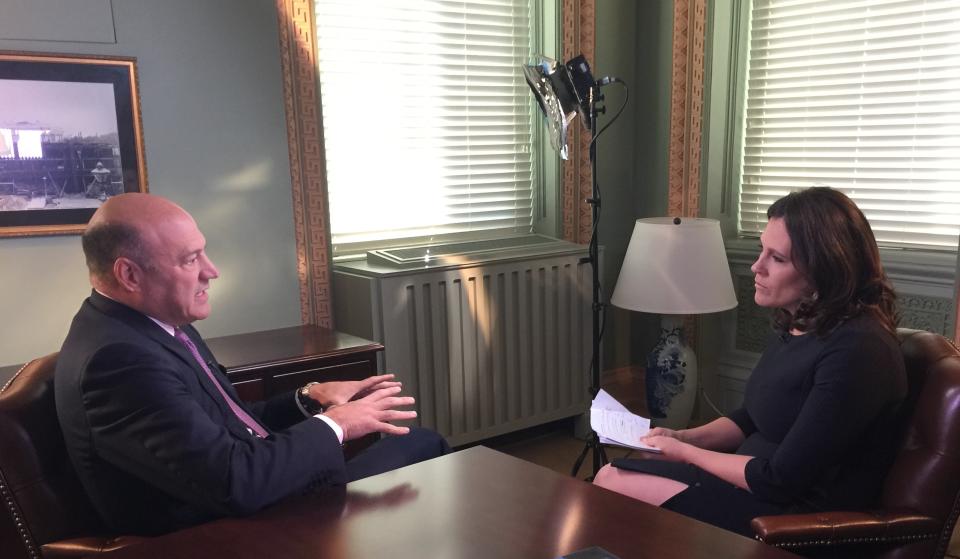Gary Cohn: We won't put conditions on repatriated cash, and we're fine with stock buybacks
President Donald Trump has been outspoken on the importance of keeping U.S. corporate profits in the U.S. while also advocating for the “repatriation” of corporate profits earned overseas.
But while the White House’s latest tax reform proposal aims to end “the perverse incentive to keep foreign profits offshore,” many say the Trump administration ultimately has limited influence on how repatriated profits are deployed. In fact, a study conducted by Bank of America Merrill Lynch found that companies are most interested in taking repatriated earnings and using them to pay down debt and buy back shares.
But Director of the National Economic Council (NEC) Gary Cohn told Yahoo Finance he’s okay with that. Furthermore, he said the administration’s plan wouldn’t set restrictions on the use of repatriated cash, which was the case during the 2004 repatriation tax holiday.
“We’re not going to put conditions on it,” Cohn told Yahoo Finance. “We need to get the money back into the United States. There’s trillions of dollars offshore.”
Cohn said he’s okay with companies using the money as they wish.
“If they buy back stock, okay so they buy back stock,” he said. “That means the government collects a tax on the capital gains or the ordinary income from whoever they buyback stock from. Let’s call it 23.6%. The government gets 23.6%.”
In addition to providing tax revenue, Cohn said he believed investors would take that cash and put it back to work.

“That person has that capital. What are they going to do? They’re going to reinvest it back into the economy,” he said. “That money is money that’s been in the economy, it’s going to be reinvested in the economy. And we’re going to have a double tax event: We’re going to have a tax event on the repatriation and a tax event when they buy back shares or they issue a dividend. It’s exactly what we’re fine with because the government’s going to get money and we’re going to see capital reinvested back in the system.”
Will helping companies actually help the average worker?
Economists have questioned the likelihood of corporate tax savings getting to the average worker versus benefitting the shareholder class.
“Think about what happens if you cut the taxes on corporate profits,” Paul Krugman wrote in a recent column. “The immediate impact is that (duh) corporations have more money. Why would they spend that extra money on hiring more workers or increasing their wages?” Krugman added that it would take a host of assumptions to support the idea that companies would spend more on investments and labor.
But when asked how long it will take that wealth to get to the average worker, Cohn was optimistic.
“It’s going to get to the worker relatively quickly,” he said. “When you lower someone’s corporate tax rate from 35% to 20%, and we start seeing business creation in the United States in a relatively tight labor market, and you go out and try and hire the incremental worker, you’ve got to pay that incremental worker more than they earn today to shift jobs. That current employer has to pay their workers more. You will start seeing wage inflation in the system. That’s how we’re gonna get it to the worker.”
Nicole Sinclair is markets correspondent at Yahoo Finance
For more from Yahoo Finance’s interview with Gary Cohn, please see:
Gary Cohn: ‘The estate tax is really about small business’
Gary Cohn: ‘We have to have a permanent change in the tax system’
Gary Cohn: Here’s how I expect corporate tax cuts to spur growth
Please also see:
Companies say they would use repatriated earnings to buy back stock
The lack of chaos has been brutal for Wall Street trading desks
One-third of retirees end up getting full-time jobs
Credit Suisse’s new strategist unveils bullish 2018 market call

 Yahoo Finance
Yahoo Finance 